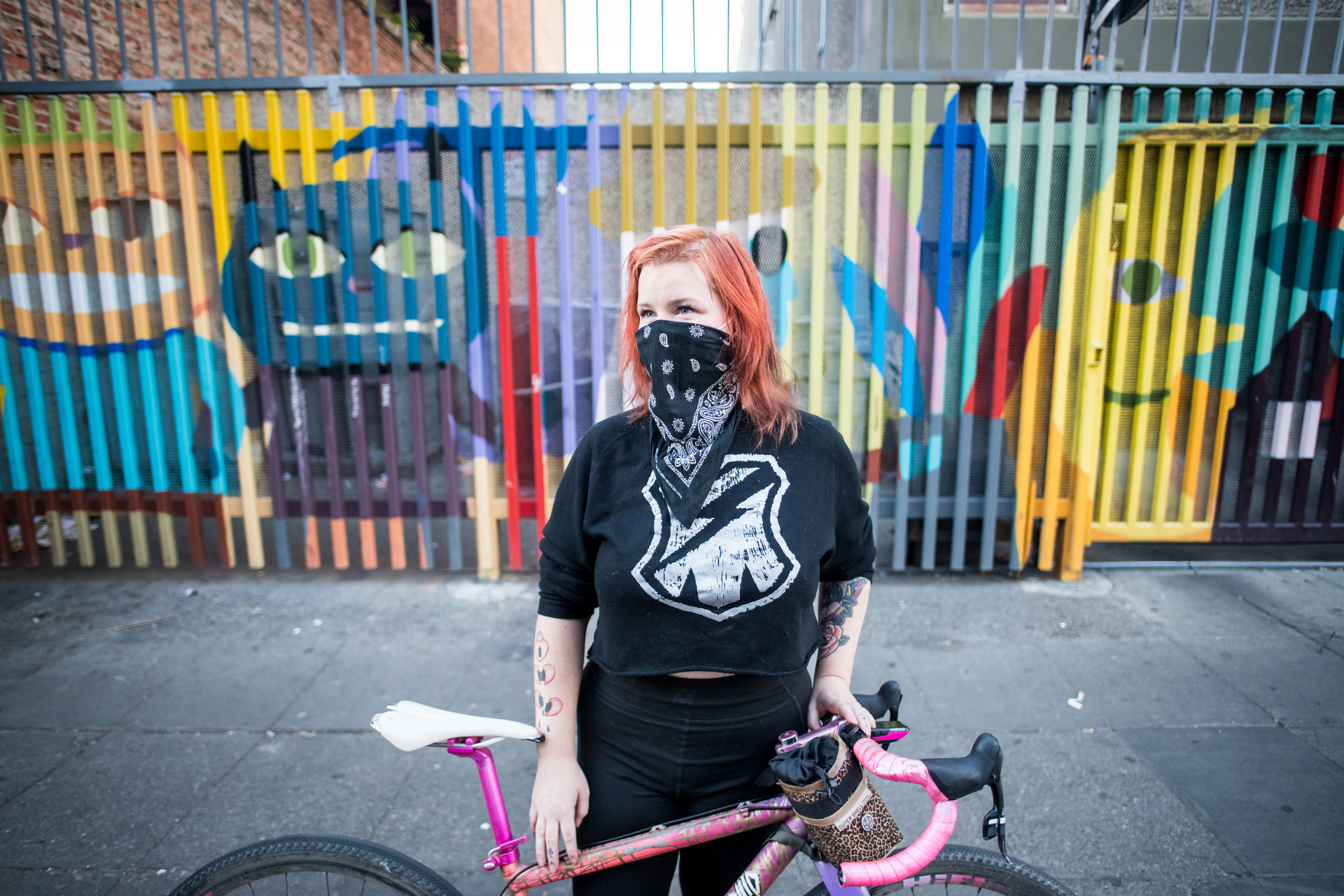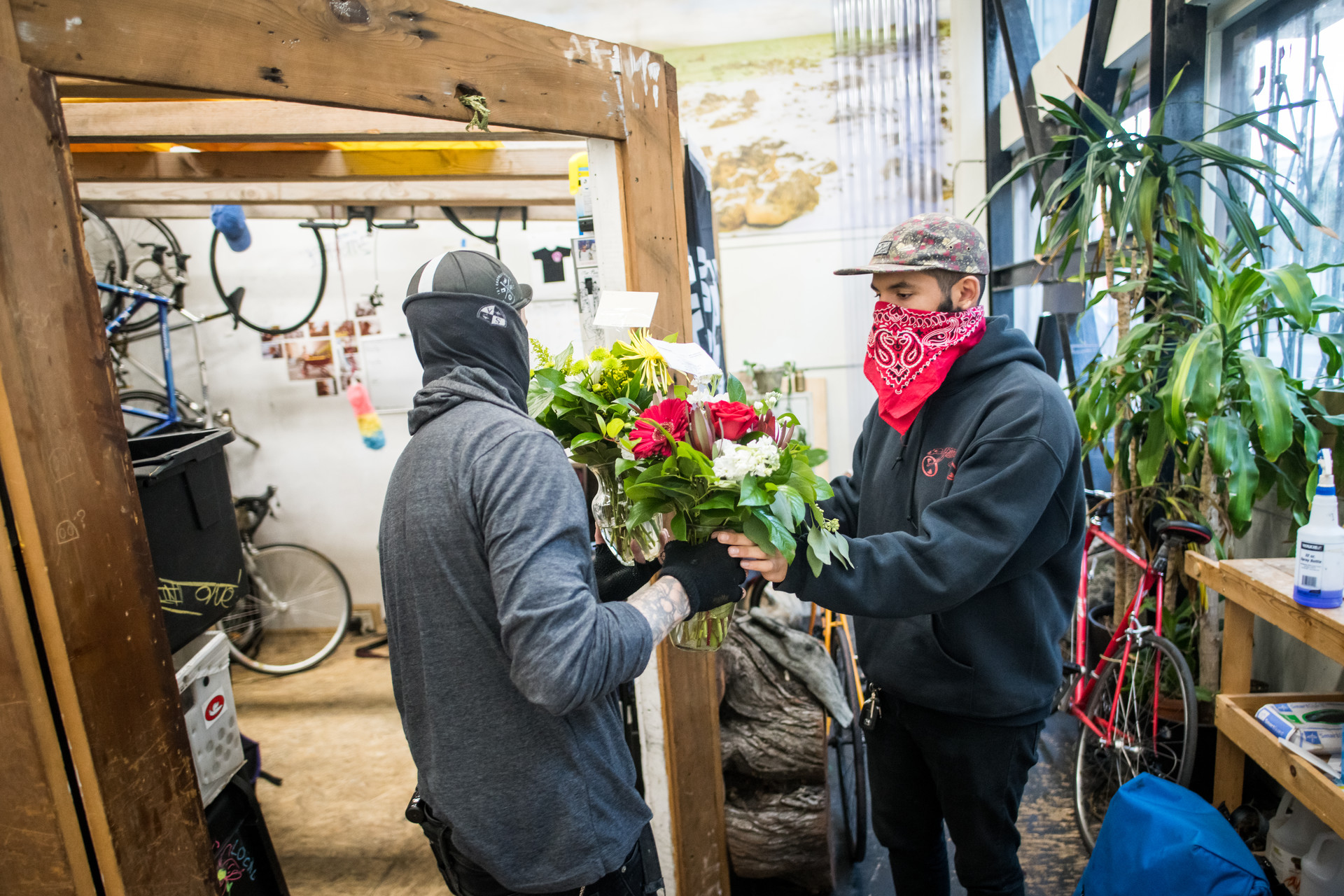If you order food from DoorDash, Uber Eats or Postmates, there’s a pretty good chance the person who delivers your meal has far fewer labor protections and benefits than you do.
Tired of Big Tech, Co-ops Appeal to Delivery Workers Burned by Gigs

Gig workers lack basic employee benefits such as a guaranteed minimum wage, overtime pay, workers’ compensation and unemployment insurance. And Proposition 22, which California voters recently passed after a historic spending campaign by gig companies, creates a new sub-employee category for those workers, codifying the lack of protections.
In the Bay Area, most restaurants are now using one of these three platforms to deliver their food to customers. But there are a small number of venues that have chosen to go with a local delivery option, one with a completely different ownership structure.
That service is called the Candlestick Courier Collective (CCC). And it was started not by eager web entrepreneurs with infusions of venture funding, but by people from the Bay Area’s punk and fixed-gear bike scene who aspire to create a full-fledged co-op in which every rider has a share of ownership.

The effort is the latest iteration of a bike courier service that has been in the Bay Area since the early 2000s — mainly operating as an anarchist collective — with four owner-workers and a network of some 60 independent bike messengers. The collective is in the process of transitioning into a co-op, in which independent messengers will have a share of ownership in the business.
Headquartered just a few blocks from Uber headquarters in San Francisco’s Tenderloin neighborhood, the cavernous warehouse-like space is empty except a small office made of plywood, racks of bikes and a backroom outfitted with a drum set. Throughout the day, tattooed and pierced bike messengers pop in and out, grabbing radios and bikes, which are all communal.
The collective’s clients are all local small businesses — primarily restaurants, including longtime regulars Udupi Palace, Jay’s Cheesesteak and Miss Saigon. Food ordered from them is delivered by a Candlestick Courier, not a gig worker from one of the big app services.

“We are working with local businesses and only local businesses because the whole goal is to put the money back into our pockets, back into restaurant pockets, back into the community,” said Tasha Rose, one of the four owner-workers.
At one point during college, while studying at UC Berkeley, Rose said she was so desperate for money she drove for Lyft, something she vows to never to do again.
“I would so much rather put that work and that time and that blood and sweat and tears into this,” she said.
Apps are constantly approaching the collective to “collaborate,” said Pierce McCleary, another worker-owner at CCC. “We’re really, really weary of new partners that seek our services because they’re really just trying to exploit our labor.”
The collective has been burned before — twice — and badly. First, it was with Grubhub, which had been partnering with couriers across the country. McCleary said the food-app company in 2017 canceled all its courier contracts overnight, and took over those services. Postmates, another food-ordering app, similarly made off with local bike courier’s clients, McCleary said.
“The second they get successful enough to vertically integrate and do it all their own, they’re going to kick you out the door,” he said.
McCleary said he’s disappointed California voted for Proposition 22. Allowing these companies to keep denying their workers benefits, he said, gives the big app services an unfair advantage against businesses like his that are trying to offer employee status to workers, let alone a shared-ownership co-op model.
Although still small, the collective has grown markedly during the pandemic, as more people rely on delivery service for many of their needs. In addition to food delivery, customers can also hire the service for general courier tasks.
The collective also recently started working with the New Harmony Cafe in San Francisco’s Mission District, which is participating in the SF New Deal program to provide food to quarantining seniors.
Ben Angel, the cafe’s owner, said it felt right to work with a collective rather than a delivery app that uses gig workers.

“It’s a groundswell from the community instead, as opposed to, you know, a venture-funded, hyper-growth, ‘Let’s extract as much from the people and the companies that are our clients and customers,’ ” Angel said. “I used to work in tech and there are some great tech companies out there, but there are a lot of places that put profit over everything else.”
Gerry Valencia, one of CCC’s couriers, started working for the collective right at the beginning of the pandemic, and he said he likes that he is delivering exclusively for local businesses.
“I’d rather know who I’m working for and who I’m delivering for, rather than — today I am going to this random fast food spot that I’m never going to see again and deliver to these people for a faceless app,” he said.
Valencia’s parents are both immigrants. His father works as a gardener, his mom as a maid.
“My mom doesn’t understand how I am a worker and an owner,” he said. “If something happens, she’s like, ‘How do your bosses feel about that?’ And I’m like, ‘Mom, I am the boss. I just talk to the other ones and I explain this thing happened and they all understand.’ ”
